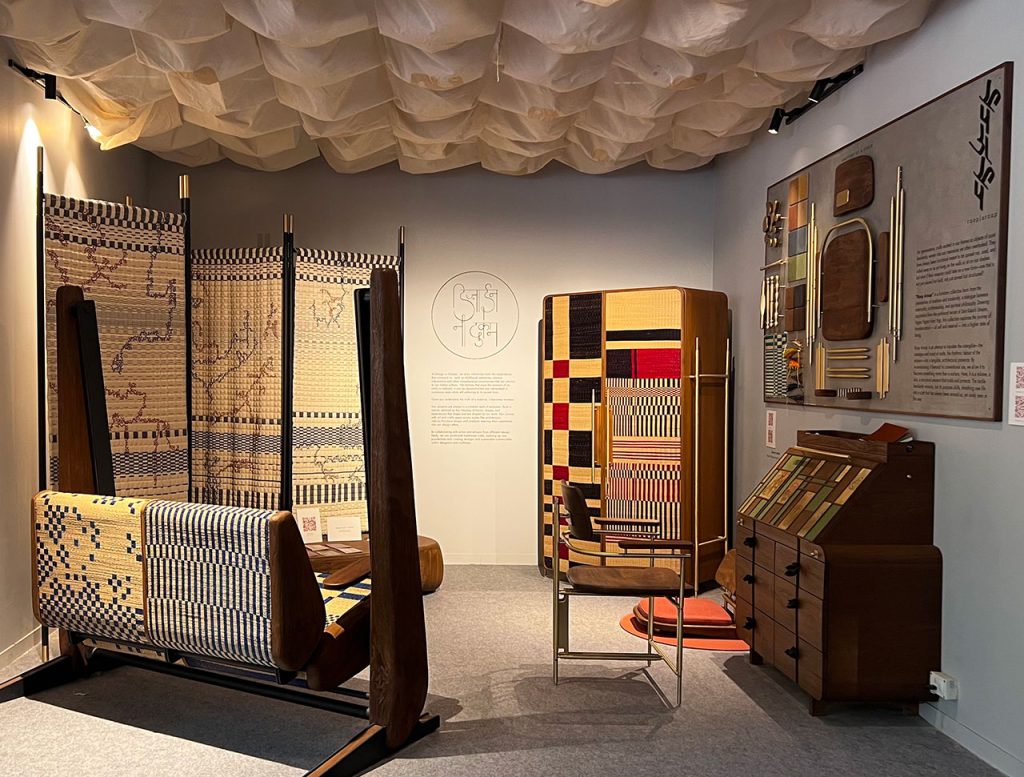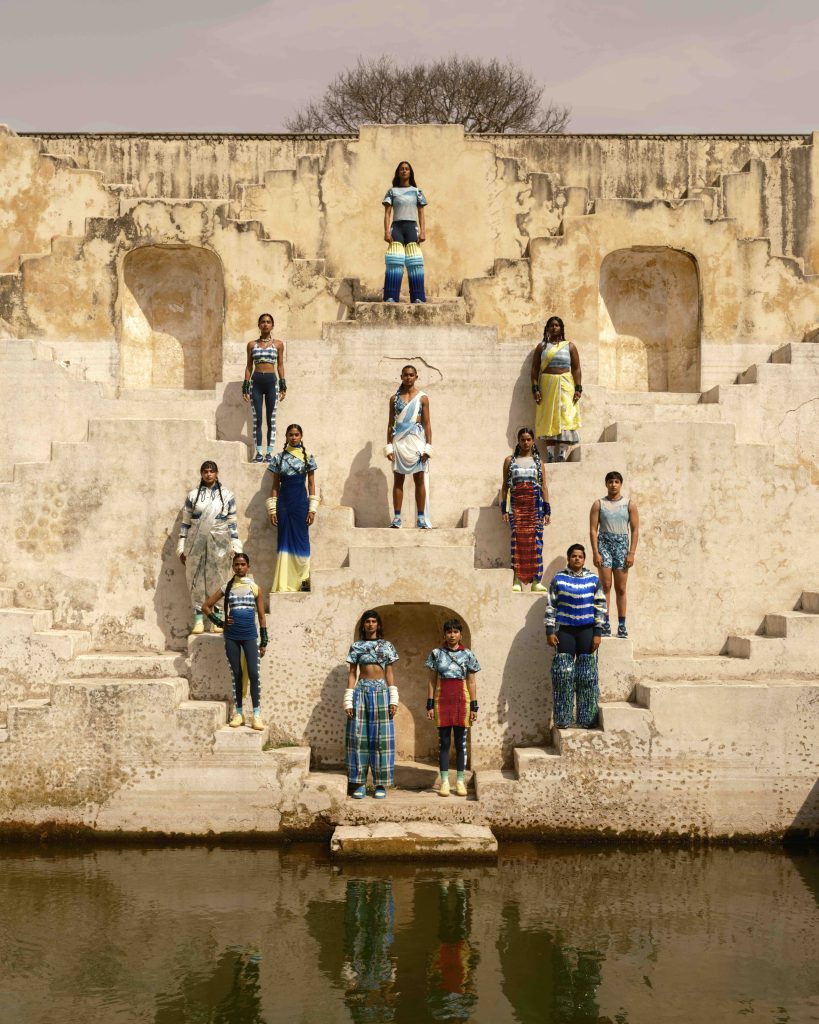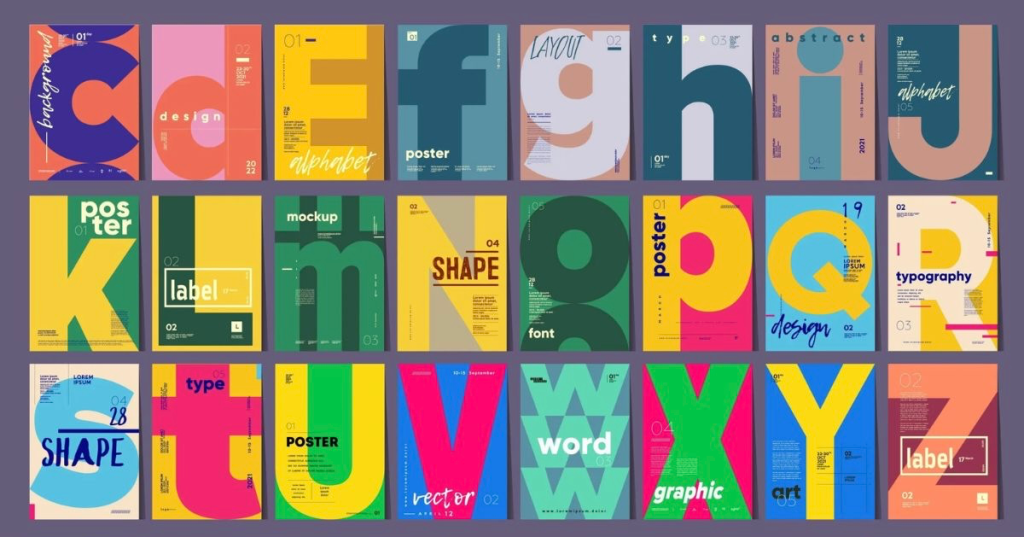Ahmedabad-based design studio Design ni Dukaan, led by architect Veeram Shah, has unveiled its latest collection Roop Aroop, which reinterprets traditional Indian craft as functional, modern design. The collection transforms handcrafted textiles and weaving traditions into objects of daily use, ranging from seating and storage systems to partitions and tables, while retaining their artisanal essence.
Rooted in the philosophy of “Roop” (form) and “Aroop” (essence), the collection draws inspiration from the verses of Sant Kabir, envisioning craft as a living, evolving practice. “Our aim was to push craft beyond ornamentation, to express it as an immersive and functional experience,” says Shah.
Roop Aroop spotlights collaborations with textile-based design practices Raasleela and Majja Design Studio, reviving two endangered crafts—Sujani quilting from Gujarat and Pathamadai pai weaving from Tamil Nadu. Together, these partnerships have produced pieces such as the Rafiq ni Sujani Partition, Beevi Pai Swing, and Banu Pai Cabinet, each blending traditional materials with contemporary form.
The Rafiq ni Sujani Partition, created with artisan Rafiq bhai, uses a double-cloth weaving technique to create tactile, layered surfaces that play with light and transparency. In Tamil Nadu, Majja Design Studio’s work with Pathamadai grass weaving resulted in the Beevi Pai Swing and Banu Pai Cabinet—pieces that reinterpret mat weaving into structural furniture.
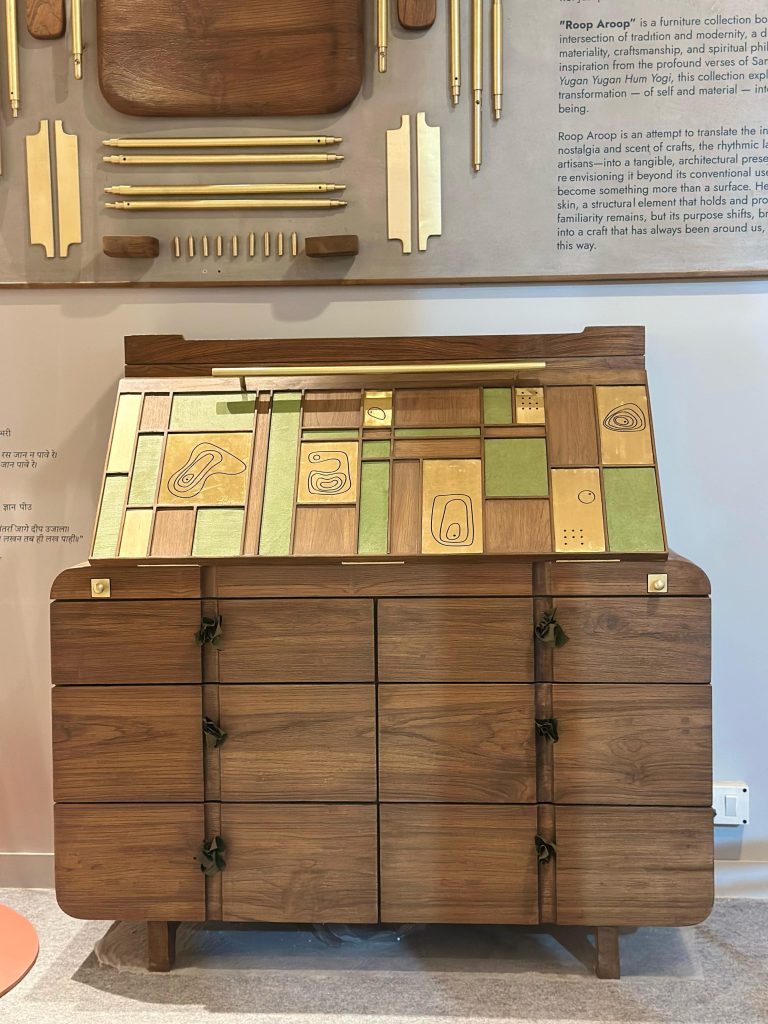
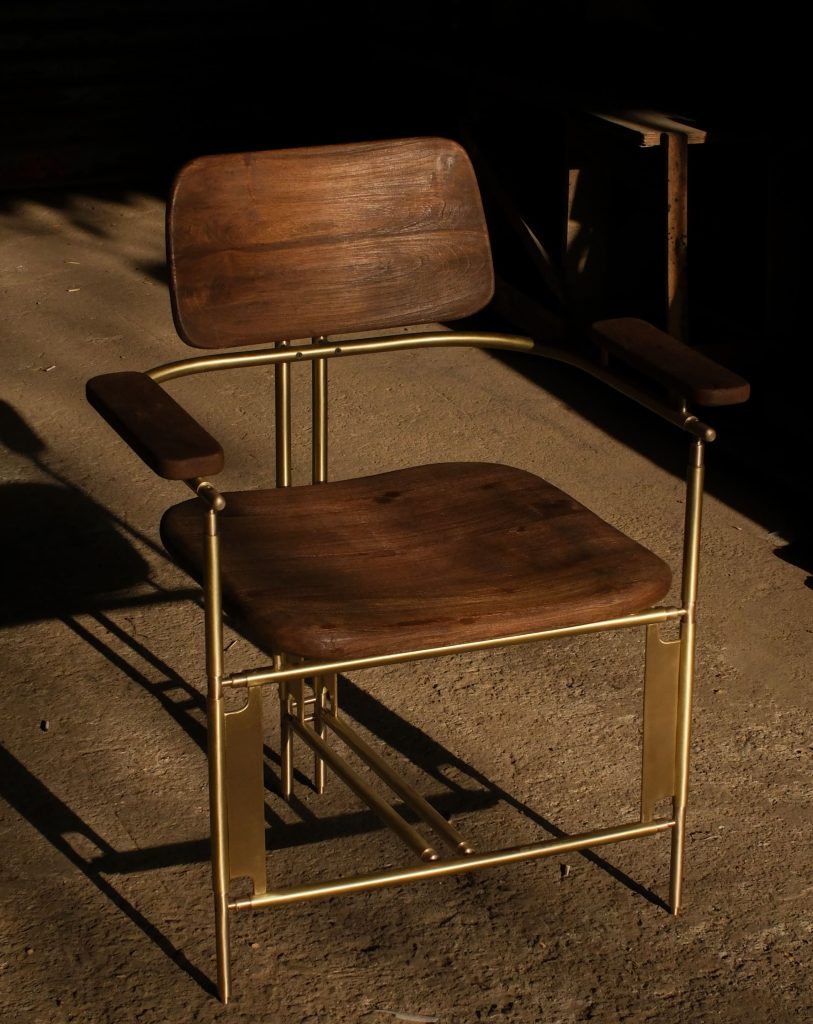
Gyan Peeu Study Table & Ras Bhari Chair
Wood and brass, materials central to Design ni Dukaan’s design language, complement the collection’s textile-based elements through refined joinery and sculptural form. Key works include the Ras Bhari Chair, Gyaan Peeu, Sukh Asan, and Sangat Manch—all exploring the boundaries between furniture and sculpture.
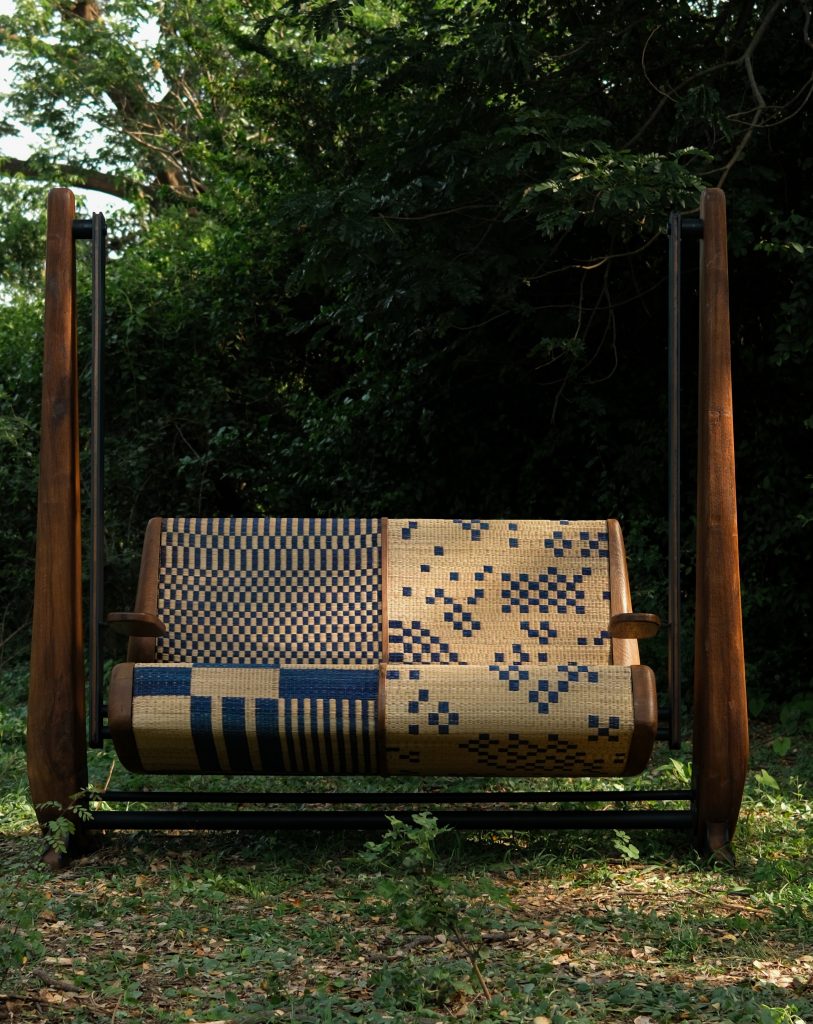
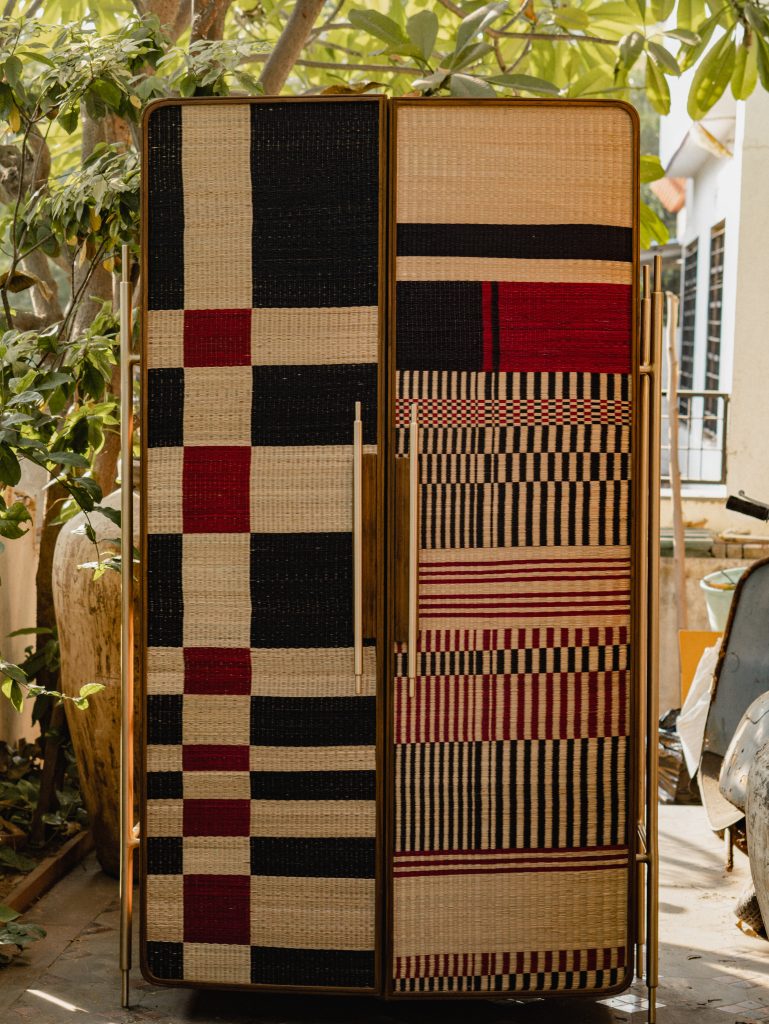
Beevi pai Swing & Banu Pai Cabinet
Through Roop Aroop, Design ni Dukaan foregrounds a sustainable design philosophy that positions craft as adaptive and enduring. By merging traditional skill with modern functionality, the studio continues to expand the conversation around how Indian craft can evolve within contemporary living spaces.
Cover Image: The Rafiq ni Sujani Partition
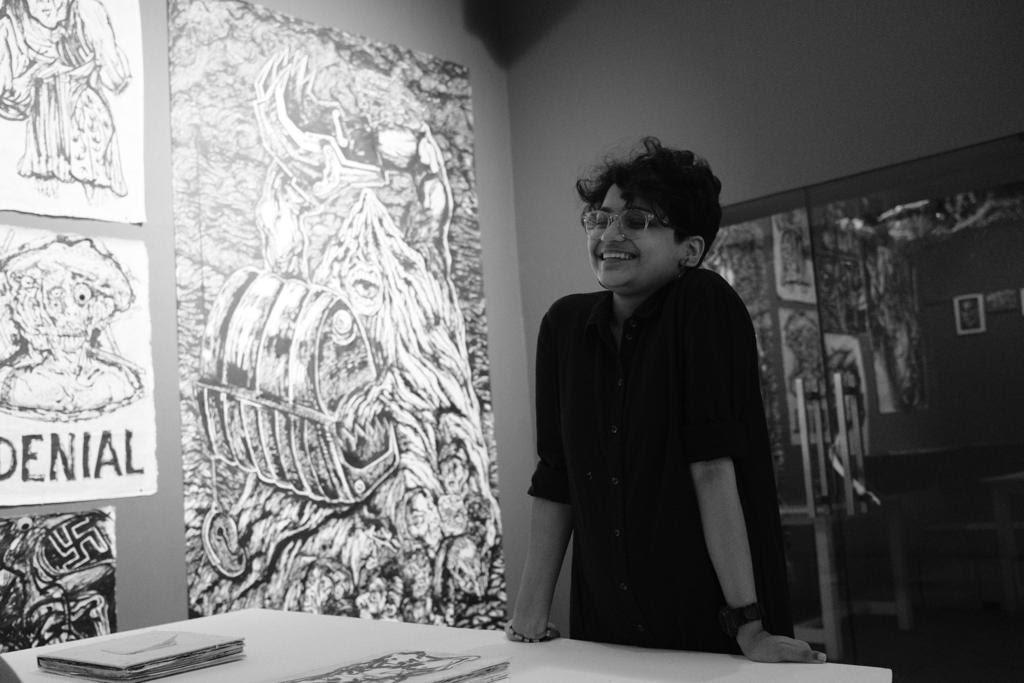
Athmaja Biju is the Editor at Abir Pothi. She is a Translator and Writer working on Visual Culture.

